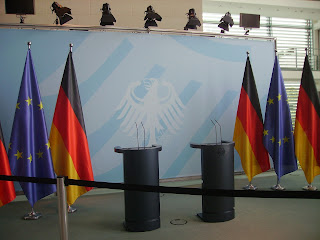Why Politics Is Important: The Biggest Myths And Why?
Politics is an important aspect of modern society, as it helps to shape the direction of a country and its people. However, there are several myths surrounding politics that can obscure its true importance. Here are some of the biggest myths about politics, and why they are not accurate:
Myth 1: Politics is only for politicians and political experts. Reality: Politics affects everyone, regardless of their profession or level of expertise. Political decisions can have a direct impact on people's lives, from the taxes they pay to the public services they receive.
Myth 2: Politics is only about elections and politicians. Reality: Politics encompasses much more than just elections and politicians. It includes issues such as healthcare, education, employment, and foreign policy, and it involves various stakeholders such as businesses, civil society organizations, and citizens.
Myth 3: Politics is too complex and boring. Reality: Politics can be complex, but it is also important for citizens to be informed and engaged in the political process. By understanding political issues and engaging with political representatives, citizens can have a greater say in the decisions that affect their lives.
Myth 4: Politics is all about corruption and personal gain. Reality: While there may be instances of corruption and personal gain in politics, this is not representative of the entire political system. Many politicians are motivated by a desire to serve their communities and make a positive difference in people's lives.
Myth 5: Politics doesn't matter, and my vote won't make a difference. Reality: Politics matters, and individual votes can make a significant impact in elections. In addition, citizens can engage in other forms of political participation, such as contacting their representatives, participating in public consultations, and supporting advocacy groups.
How to Choose the Right Candidate
Choosing the right candidate in an election can be a challenging task, but there are several ways to approach it. Here are some tips for choosing the right candidate in an election:
1. Research the candidates: Take the time to research the candidates running for office. Look up their background, experience, and track record. Check their voting history and any public statements they have made.
2. Analyze the candidate's policies: Look at the policies and platforms of each candidate and consider how they align with your personal values and beliefs. Consider which candidate's policies are most likely to make a positive impact on the community.
3. Consider their leadership skills: Think about the candidate's leadership skills and qualities, such as their ability to listen, communicate, and work with others. Look at their past performance and see how they have responded to crises or difficult situations.
4. Assess their character: Consider the candidate's character, integrity, and ethics. Look at their personal values and how they have handled themselves in the past.
5. Attend candidate forums or debates: Attend public forums or debates to hear directly from the candidates and see how they respond to different issues and questions.
6. Discuss with others: Talk to family, friends, and colleagues about the candidates and their policies. Listen to their opinions and share your own.
The Worst Habits That Age You: What You Should Stop Doing!!!
What You Should Know about Voting
Voting is an essential part of democracy, and it is a right and responsibility for citizens in many countries. Here are some key things you should know about voting:
1. Register to vote: In most countries, you need to register to vote in advance of an election. Check your country's election commission website or your local electoral office for information on how to register.
2. Know the voting requirements: Be aware of the requirements for voting, such as voter ID laws, eligibility criteria, and voter registration deadlines.
3. Educate yourself: Learn about the issues and the candidates before you vote. Research their backgrounds, policies, and positions on important issues.
4. Find your polling station: Know where your polling station is located and the hours of operation. Make sure you have the necessary documents to vote, such as your ID and voter registration card.
5. Follow the rules: Follow the rules and instructions given by election officials. For example, you may need to fill out a paper ballot or use an electronic voting machine.
6. Encourage others to vote: Encourage your friends, family, and community members to vote, and help them with registration or transportation to the polling station.
7. Accept the outcome: Regardless of the outcome, accept the results of the election and work with the elected officials to make positive changes in your community.
Voting is a crucial part of the democratic process, and it is essential to have an informed and engaged citizenry. By educating yourself on the issues, finding your polling station, following the rules, and encouraging others to vote, you can participate in shaping the future of your community and your country.
Can Money Really Buy Happiness? What Can You Do to Be Happier in Life?🤔click here!!!
Conclusion
In conclusion, politics is a critical aspect of human society that affects every aspect of our lives. It is an essential tool for managing and resolving conflicts, developing policies, and ensuring that the needs of citizens are met. Politics also provides a platform for individuals to express their opinions, advocate for their beliefs, and participate in the decision-making process. By engaging in politics, citizens can help shape their communities and influence the direction of their country. It is essential that we recognize the importance of politics and work together to create a society that is just, equitable, and responsive to the needs of all its members.
Trending posts..😲😵click here!!!
Thanks for reading this blog,please share with others and help us to grow.





0 Comments
Thanks for reading my blog,please read other topics my blog also!!!